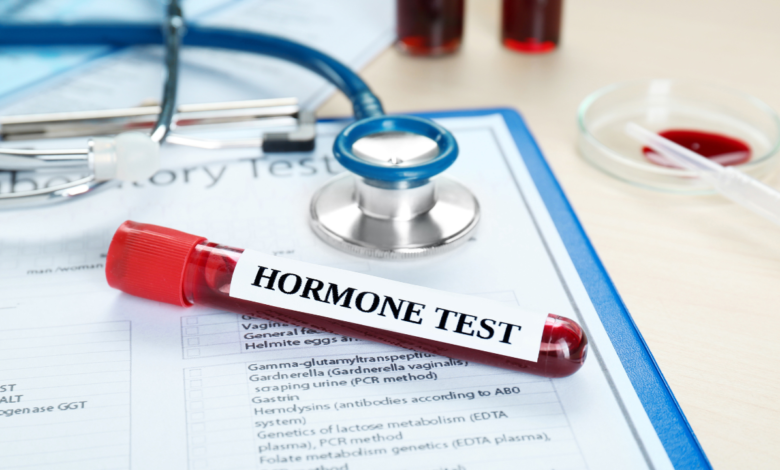Hormone Testing

What is Hormone Testing?
Hormone testing is a medical procedure used to measure the levels of various hormones in the body. Hormones are chemical messengers that regulate many essential bodily functions, including growth, metabolism, reproduction, and mood.
Why Hormone Testing is required?
Hormone testing can be necessary for:
- Diagnosing hormonal imbalances: It can help identify conditions such as hypothyroidism, hyperthyroidism, diabetes, and polycystic ovary syndrome (PCOS).
- Monitoring treatment effectiveness: It can track the effectiveness of hormone replacement therapy or other treatments for hormonal conditions.
- Assessing fertility: Hormone testing can help evaluate fertility issues in both men and women.
- Investigating symptoms: It can help determine the cause of symptoms such as fatigue, weight gain, mood swings, or irregular periods.
which are the method of Hormone Testing?
Methods of Hormone Testing:
Hormone testing typically involves collecting a blood or urine sample. The specific method used will depend on the hormone being tested.
- Blood test: This is the most common method for hormone testing. Blood samples can be collected through a simple venipuncture.
- Urine test: Urine samples may be collected to test for certain hormones, such as cortisol or pregnancy hormones.
- Saliva test: Saliva samples can be used to measure certain hormones, such as cortisol.
who should go for Hormone Testing?
People who may benefit from hormone testing include:
- Individuals with symptoms of hormonal imbalances, such as fatigue, weight gain, or irregular periods.
- People undergoing fertility treatments.
- Women with menstrual irregularities or perimenopausal symptoms.
- Men with erectile dysfunction or low libido.
- Individuals with certain medical conditions, such as diabetes or thyroid disorders.
What are the results of Hormone Testing?
The results of a hormone test will show the level of the specific hormone being measured. These results can be compared to normal reference ranges to determine if there is a hormonal imbalance.
What are the components of Hormone Testing?
- Blood or urine sample: The sample is collected from the patient.
- Laboratory analysis: The sample is sent to a laboratory for testing.
- Results interpretation: A healthcare provider will interpret the results and determine if any further action is needed.
Hormone testing is a valuable tool for diagnosing and managing various health conditions. If you are experiencing symptoms that may be related to hormonal imbalances, your doctor may recommend hormone testing.





